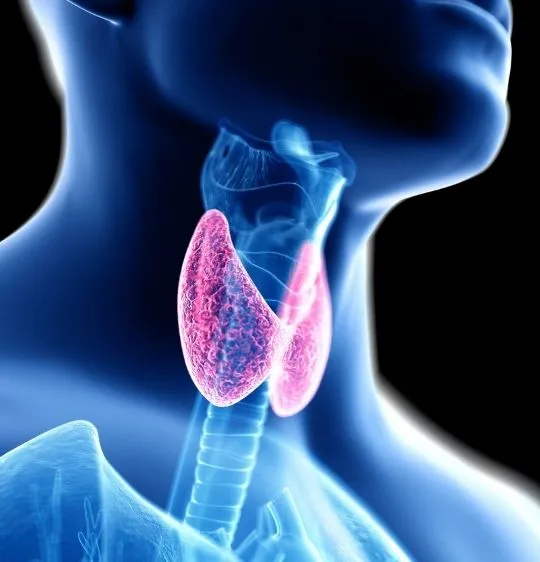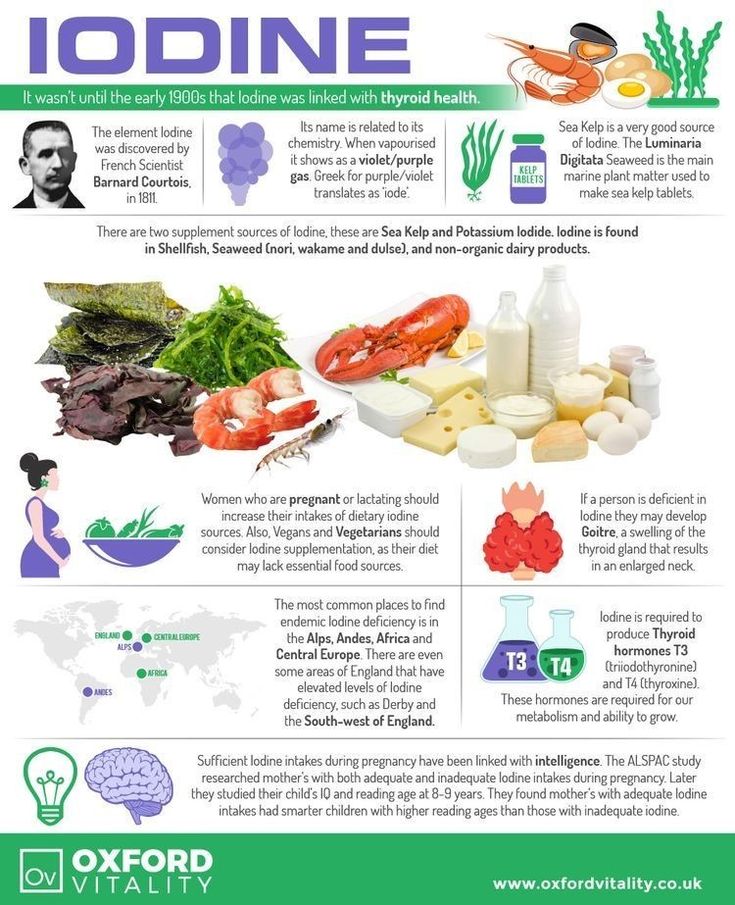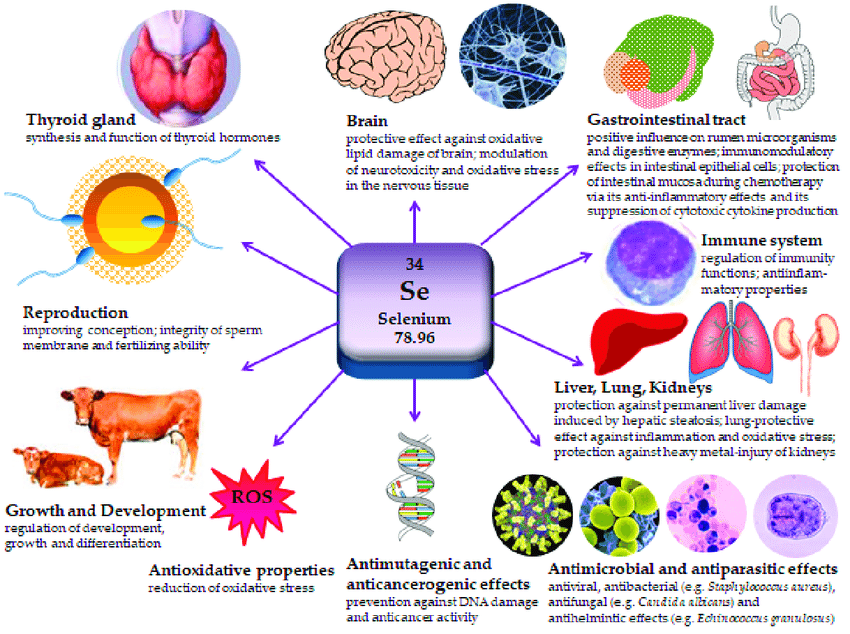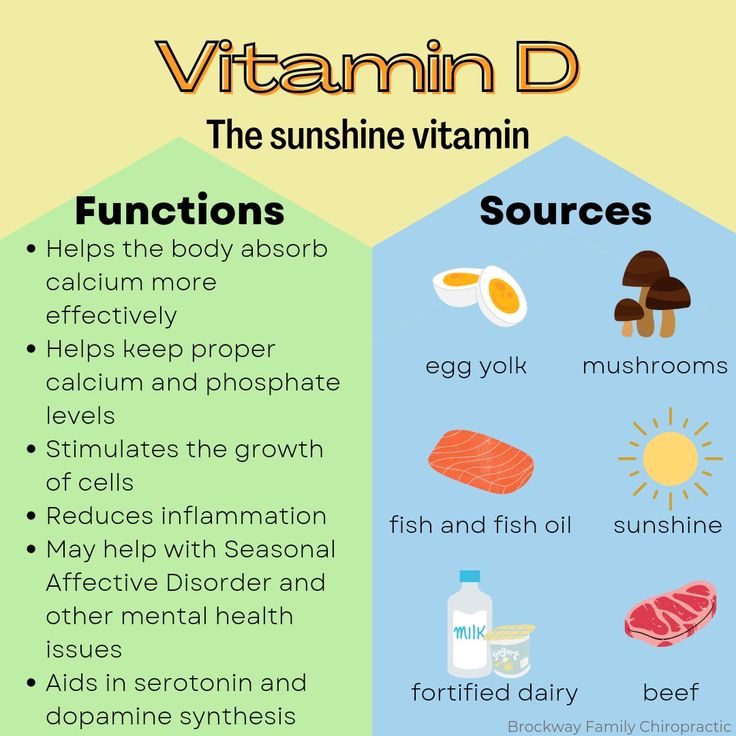
As mentioned in this author’s recent post, Hashimoto’s thyroiditis (HT) is a condition whereby antithyroid antibodies and T-lymphocytes infiltrate and destroy cell components of the thyroid gland; in time, the thyroid loses its function to produce thyroid hormones.1 This author’s last post also considered the role of gut health, and optimizing the same, as a step in supporting thyroid function. In the following sections, this author would like to explore a subset of nutrients used by the thyroid, as another means of supporting the health and function of said endocrine gland.

Iodine is a micronutrient from the diet required for thyroid function and the synthesis of thyroid hormones (i.e., T3 (triiodothyronine) and T4 (thyroxine).2,3 The recommended adult daily intake is 150 mcg, with an exception of 250 mcg/day during pregnancy/lactation.2(52) Food-based sources of iodine include mostly seafood such as scallops, cod, sardines, tuna, salmon, and seaweed.2(52) However, iodine can also be found in animal and plant products such as eggs, milk, yogurt, strawberries, and cranberries.2(52) Left unchecked, iodine deficiency can manifest as goiter (enlarged thyroid) and cretinism (physical/cognitive deformities).2(52) However, excess iodine can is thought to have an inhibitory effect on thyroid hormone synthesis and secretion.2(52) Thus, maintaining optimal dosing is relevant, especially among individuals with HT.

Selenium is a micronutrient that confers several physiological benefits to include antioxidant and anti-inflammatory properties, and increasing active thyroid hormone production.2(52) The recommended adult daily intake is 55-75 mcg/day and foods rich in selenium include Brazil nuts, tuna, oysters, and animal products (i.e., pork, beef, poultry).2(52) Thyroid tissue is rich in selenium likely since selenium is a part of glutathione peroxidase, thioredoxin reductases (TR), iodothyronine deiodinases, and selenoprotein P; substances, which are critical in both thyroid homeostasis and function.2(52) Optimal dosing of selenium also helps suppress thyroid hormone production (the initial phase of HT is overproduction of thyroid hormones) through down regulating thyroid peroxidase antibodies and thyroglobulin antibodies (destroys thyroid glandular tissue).2(53)

Vitamin D is now considered both a micronutrient and steroid hormone widely known for its management of bone health.2(52) Vitamin D is produced from exposure to sunlight and dietary intake from sources such as cod liver oil, fresh salmon, and sardines.2(54) The recommended daily intake of D3 600 IU/day, or levels sufficient to raise blood concentrations between 30-80 ng/ml.2(54),3 Strong associations exist between vitamin D deficiency and thyroid dysfunction, specifically, thyroid autoimmunity which applies to all ages.2(53) What remains unclear however is whether low vitamin D is a cause of HT or a biochemical consequence from the same. Despite a lack of clarity regarding whether low vitamin D is a cause or effect of HT, evidence does indicate the ability for optimal vitamin D levels to help control thyroid peroxidase antibody activity.2(54) Thus, maintaining optimal blood levels of vitamin D is paramount.
In conclusion, HT is a condition whereby antithyroid antibodies and T-lymphocytes infiltrate and destroy cell components of the thyroid gland, slowly stripping away the thyroid’s ability to produce T3 and T4. Despite the inevitable nature of HT, supporting optimal gut function and ensuring appropriate iodine, selenium, and vitamin D intake can help reduce systemic inflammation and support thyroid hormone production.
References
1. Reisner EG, Reisner HM. An Introduction to Human Disease: Pathology and Pathophysiology Correlations. 10th ed. Burlington, MA: Jones & Bartlett Learning; 2017.
2. Liontiris MI, Mazokopakis EE. A concise review of Hashimoto’s thyroiditis (HT) and the importance of iodine, selenium, vitamin D and gluten on the autoimmunity and dietary management of HT patients. Points that need more investigation. Hell J Nucl Med. 2017;20(1):51-56. doi:10.1967/s002449910507.
3. Gropper SS, Smith JL, Carr, TP. Advanced Nutrition and Human Metabolism. 7th ed. Boston, MA: Cengage Learning; 2018.
-Michael McIsaac
